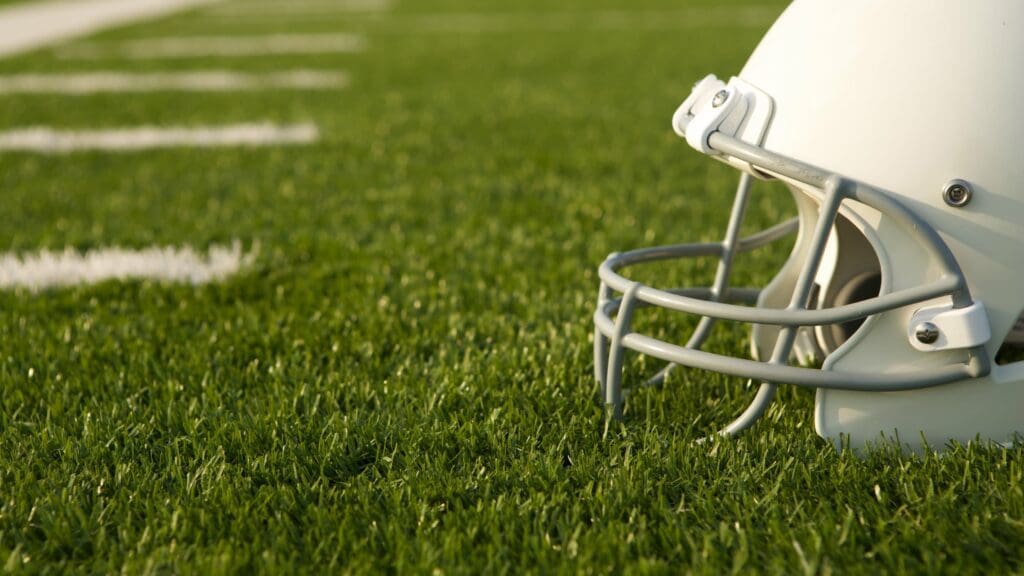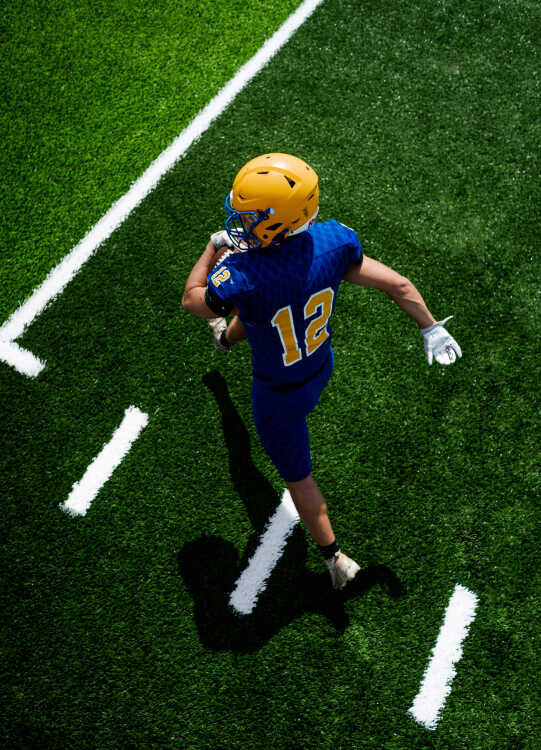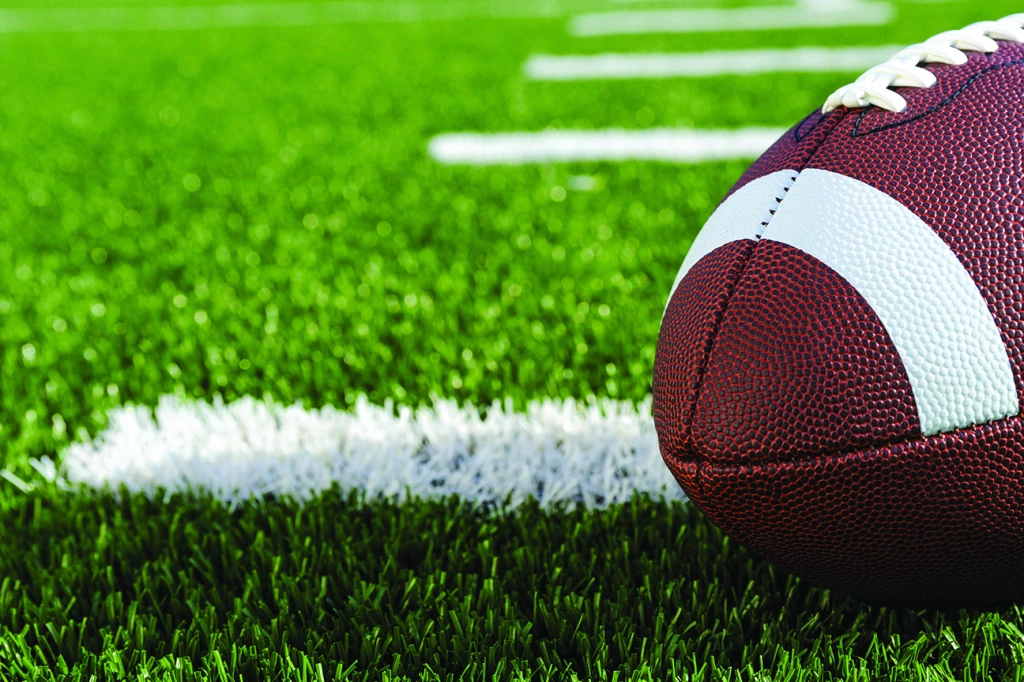THE ULTIMATE GUIDE TO ASTRO TURF

This guide will walk you through all you need to know about astroturf, including; the origins of astroturf, the difference between astroturf and artificial turf, plus the uses of astroturf.
Astro Turf Origins
Many people believe Astro turf to be another name for artificial turf, however, this isn’t necessarily true.
Astro turf originally came to light around 60 years ago all the way back in 1965, not as a product, but as a company. James Faria & Robert Wright founded this company and sold Astro turf under the name ChemGrass, but promptly changed their name to “AstroTurf” shortly after launch.
Not long after Astroturfs’ formation, they blew up big time by installing Astro turf in the Houston Astrodome which was home to the major league baseball side, aptly named the Houston Astros…as you might be able to tell, there was a big Astro-based theme going on in Houston during the ’60s. Regardless, this was a big improvement on what has usually been painted dirt as a playing surface. The general public found that astroturf made the game of baseball more exciting, this was down to the vast improvement of the playing surface. Astroturf made the ball travel faster and bounce higher, making baseball games more hectic and enthralling.

From here, Astroturf became the market leader for artificial turf in America and set a high standard for Astroturf going forward, with Super Bowls, world series and European football being played on the revolutionary surface. Unfortunately for Astroturf, competitors were on the rise in the early 2000s. These competitors led to the downfall of Astroturf as they declared bankruptcy in 2004. Since 2004, the Astroturf name has been purchased and passed around by various companies who have tried to revive the artificial sporting surface.
Uses Of Astro Turf
In current-day applications, astroturf is used almost exclusively for sporting events and arenas.
Sports that utilise astroturf include the following:
- Football Pitches
- Hockey Grass
- Tennis Courts
- Baseball Grounds
- Cricket Grounds
- Rugby Fields
- Golf Courses
- American Football Pitches
- Bowls Lawns
- Lacrosse
- Ultimate Frisbee Courses
- Badminton Courts
- Futsal Pitches
- Multi-Use Game Areas (MUGAs)

What Is The Difference Between Astro Turf & Artificial Turf?
The key difference between astroturf and artificial turf is mainly down to how both products are used. Astroturf is primarily used for sporting and outdoor events due to its toughness. In general, the term astro turf is rarely used in the UK anymore when referring to artificial turf, instead, astroturf is usually associated with artificial turf that is sand filled. People choose to sand infill their astroturf in order to increase its rigidity and strength when being used in sports or areas with high amounts of foot traffic.
Additionally, astroturf can also be mistakenly used to describe 3G grass. 3G grass stands for third-generation synthetic surface as it is comprised of synthetic turf which utilises both sand infills & rubber infills. These pitches are rising to prominence across European football and are growing evermore popular by the day! However, it is important to remember that 3G is not quite an astroturf.
Finally, we have artificial turf. Artificial turf is a lot more common than astroturf or 3G grass, as it is used pretty much anywhere that has a flat surface. This includes; back gardens, front lawns, displays, gyms, events & pretty much any other indoor surface. Artificial turf has the most uses out of 3G & astroturf, as sand and rubber infills aren’t necessary for artificial turf to be used. Furthermore, artificial turf can come in various different colours, pile lengths, and textures & utilise different features. For example, Lazylawn has developed artificial turf that utilises state-of-the-art technology to use UV rays to neutralise nasty odours left by pets!
Astro Turf FAQs
How much does it cost to lay Astroturf?
The cost of laying Astroturf can vary, this depends on the size and intended application of the turf. Usually, it will depend on needing a quote from a professional Astro turf layer to give an accurate price. Fortunately, Lazylawn offers an installation for all of your artificial grass & Astroturf needs.
To enquire about astroturf installation, click here
How is Astroturf laid?
Astroturf is laid in the same manner as other artificial turfs. You create an edge, lay a base, apply a membrane, and then lay and trim the artificial grass to suit your needs. Whilst the process sounds simple, it is very much easier said than done!
Can you lay Astroturf yourself?
Yes, you can lay Astroturf yourself. However, it is not recommended to do so unless you are experienced with doing so. When laying Astroturf, missing one step or doing something incorrectly could mess up the whole project. This would cost way more than a professional installation.
Regardless, if you wish to lay astroturf yourself, read our DIY installation guide for tips and guidance!
Is Astroturf good for dogs and pets?
Yes, astroturf is usually fine for dogs and other pets, as long as you do not have large or coarse infills on your astroturf. Some dogs and other pets may try to eat rubber or sand infill, which isn’t exactly ideal.
The best artificial turf for dogs and pets is from the LazyLawn AIR range, which is made specifically for pets by keeping them safe from infills and naturally neutralising odours by using UV rays.
If you would like to learn more about artificial turf & dogs, read our artificial grass for dogs guide.



